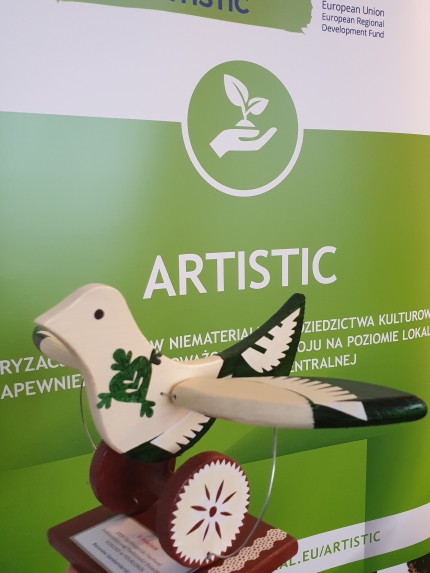HOW ICH REFERS TO THE ECONOMY?

PHOTO: RZESZOW REGIONAL DEVELOPMENT AGENCY
Intangible Cultural Heritage is part of our everyday lives. Society as a whole needs to recognize ICH as a driving force for economic development, encompassing a variety of powerful activities, with economic and noneconomic values. Many groups of society, as bearers of ICH, have much to offer to the rest of society. Through their traditional knowledge, skills and practices, ICH bearers enrich the life of others and contribute to its quality in different ways and spheres of life. For instance, ICH bearers should be motivated and empowered to introduce and transfer their ancestral knowledge, such as knowledge about natural medicines, which, through manageable and affordable techniques, transforms native plants into remedies that can be used and afforded by all groups of society. ICH bearers carry different valuable knowledge potentials that need locally available resources and do not need to be imported from distant regions. It leads to the valorization and visibility of the ICH bearers, groups and communities and ICH itself, valorizing local products and its producers, contributing to the sustainable use of the resources, local market growth and cooperation between all sectors of society. As UNESCO (n.d.) mentions, the four dimensions of sustainable development – society, environment, culture and economy – are intertwined, not separated.
By valorizing and safeguarding ICH, we contribute to social processes such as transcultural exchange and mutual human respect across cultural, social, political and even geographical boundaries. It helps to fight racial discrimination and promotes peacebuilding, remembering that peace and security are central prerequisites for sustainable development. By valorizing ICH, we as a society can achieve the survival of remarkable contents and aspects of our cultures, raising awareness of the importance of respect for one another. Also, we will avoid the danger of ICH falling into oblivion and avoid the risk that it disappears forever.
Local knowledge, skills and practices, maintained, enhanced and developed from generation to generation, can provide a revenue and give
a respectable work for a wide range of people (both craftspeople and their families, as well as suppliers of materials and services connected with the transportation and sale of the craft products), including the poor and vulnerable members of our society - UNESCO (n.d.).
UNESCO (n.d: 9) emphasizes that Intangible Cultural Heritage “constitutes a driving force for economic development, encompassing a diversity of productive activities, with both monetary and nonmonetary value, and contributes in particular to strengthening local economies”. As a living heritage, ICH can also constitute “an important source of innovation in the face of change and help achieve inclusive economic development at the local and international levels”, according to UNESCO (Ibid.).*
The article was prepared by Prof. Dr. Gertraud Koch and Dr. phil. Eliane Fernandes Ferreira Institute of European Ethnology / Cultural Anthropology of the University of Hamburg, Germany
